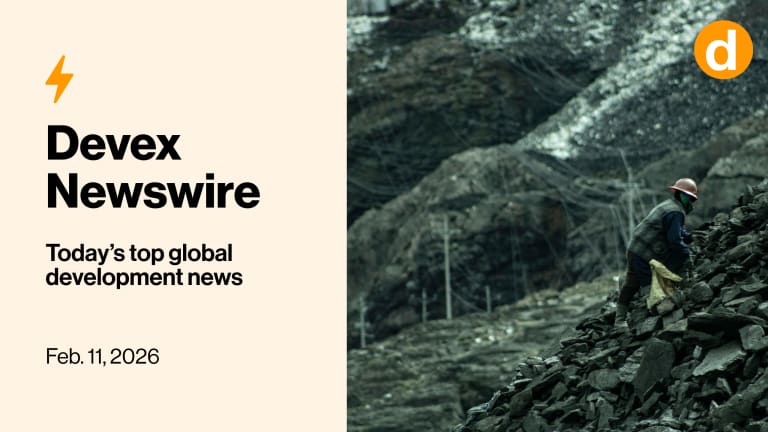How to turn the critical minerals boom into a development win
The rapidly accelerating global demand for critical minerals — essential for clean energy technology and defence — has put the development sector at a crucial inflection point. While the race to secure these resources brings enormous economic potential, it also carries significant risks, sparking debate over how to turn this moment into a true development opportunity rather than another chapter of extractivism.
During a Devex Impact House event on the sidelines of the World Bank and International Monetary Fund annual meetings this week, experts said this will be a balancing act. “There are a lot of interests we need to balance as we look at this expanding space,” said Aubrey Hruby, co-founder of Tofino Capital and transaction adviser at Palladium. “How can we balance the need to add value and create robust industries with the fact that countries are competing globally for this type of investment.”
Africa is of particular concern when it comes to critical minerals mining, she added, as it holds significant, but largely underexplored, mineral reserves. According to a recent Brookings report, Africa is expected to hold about 30% of the world’s proven critical mineral reserves.
Search for articles
Most Read
- 1
- 2
- 3
- 4
- 5








